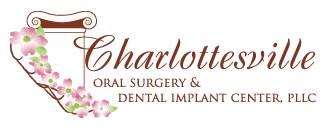02 Jun Reconstructive Surgery for Facial Trauma
Car accidents, contact sports and simple household mishaps can all lead to devastating facial injuries that require extensive repair. Certain forms of cancer, especially head and neck cancers, or congenital issues, such as cleft palate, also may result in deformities that are unattractive and can have an effect on a patient’s ability to chew or speak.
Patients are increasingly turning to cosmetic dentistry to repair damage that occurs from severe facial injuries and other conditions that compromise bone structure. When such trauma results in broken bones or other facial deformities, reconstructive surgery may be needed.
In such cases, patients can work with an oral surgeon to restore their smiles and other facial structures. The nature and specifics of the required procedures will vary based on the circumstances of the patient’s case.
For example, some procedures may be performed in an outpatient setting, while others necessitate at least an overnight hospital stay. Surgeries may last up to several hours in complex situations.
Some form of anesthesia is appropriate for all facial reconstruction surgeries, and sedation, rather than general anesthesia, may suffice in many circumstances.
Depending on the severity of the case, the oral surgeon may also collaborate with other dental and medical professionals in treating the patient. The oral surgeon’s primary role on the team will be to re-set broken bones or to reconfigure the bones to eliminate an existing deformity.
When patients have a need for facial reconstruction, they should begin to explore surgical options as soon as possible after the injury. If the injury has sufficient time to heal completely and the bone growth occurs in an unattractive pattern, the procedure to reverse the condition may be more challenging. For babies born with cleft palates, the best outcomes occur when surgery is performed between ages nine and 12 months.
Cancer patients in active treatment or other immunosuppressed patients present an exception, though, as the chemotherapy may make them ineligible for surgery. Those patients will need to wait until their course of treatment is complete before pursuing surgery.
In situations involving facial trauma, patients should consult with our experienced team at Charlottesville Oral Surgery & Dental Implant Center. Call 434-295-0911 for more information.
